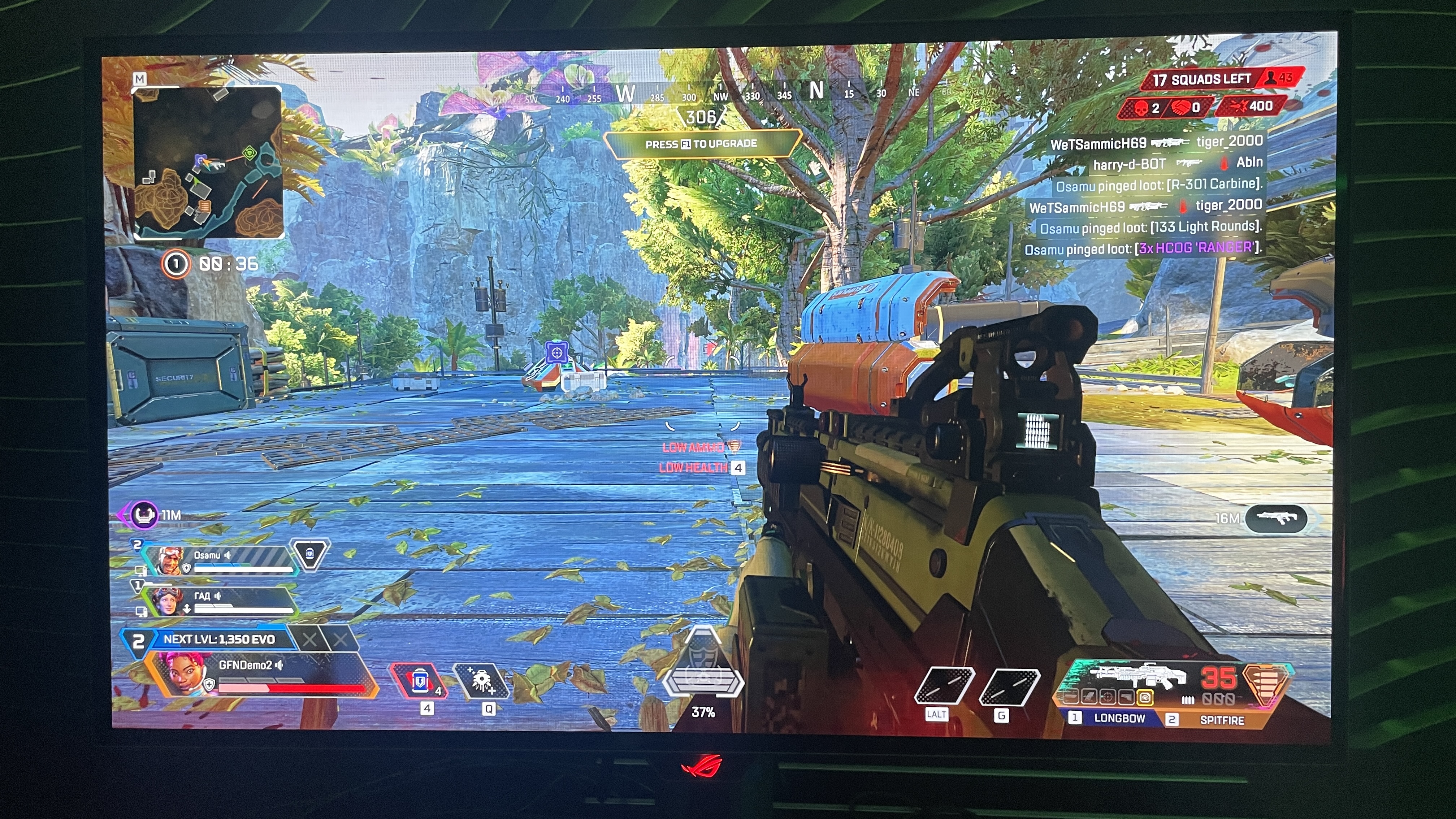Nvidia’s Exciting Upgrade: The GeForce Now RTX 5080
Nvidia has recently made waves in the tech community by unveiling what it claims to be the “biggest launch in GeForce Now RTX” history. This monumental upgrade revolves around the enhanced performance of the RTX 5080, paired with significant improvements to the GeForce Now (GFN) game streaming service. As a gaming enthusiast and a firm believer in traditional local hardware setups, my initial skepticism about cloud gaming has transformed into genuine intrigue after experiencing the latest enhancements firsthand.
Seamless Streaming Experience
During my hands-on session with GFN, particularly while playing Apex Legends at 1440p on low to medium settings, the experience was compelling—almost indistinguishable from playing on a local machine. Latency, a critical factor for competitive games, was impressively low, often around 17 to 20 milliseconds. This is remarkable, especially for a cloud gaming service and especially given my long-standing preference for local gaming setups.
Unveiling Higher Performance at 1080p
While my experience at 1440p was promising, the real upsides become even more apparent at 1080p, where players can achieve staggering frame rates up to 360 fps. During a demo of Overwatch 2 running at these settings, Nvidia utilized the Latency and Display Analysis Tool (LDAT) to capture the time lag from pressing a button to seeing the action on screen. The low latency measurements reaffirm the belief that GFN is closing the gap between traditional gaming and cloud gaming.
The Untold Power of Blackwell Servers
Engaging with Nvidia’s GeForce Now product manager Michael McSorley provided deeper insights into the technology behind it all. The RTX 5080 performance being offered is, in some aspects, actually more powerful than that of the consumer-grade RTX 5080 graphics card. This is due to Nvidia’s construction of “super pods,” bespoke servers optimized for GFN workloads and futuristic AI capabilities.
Fine-Tuning the Balance Between Quality and Responsiveness
McSorley articulated an important distinction: while the performance metrics suggest a similarity to the RTX 5080, the streaming setup also considers how games interact with performance estimation dynamically through rasterization. The impact of this performance philosophy became apparent in various games. For example, while I delighted in the rapid response times and fluid gameplay of Apex Legends, I encountered noticeable latency during a session of Borderlands. This inconsistency raised questions: was it a result of the streaming infrastructure or the game’s optimization techniques?
The Value of Latency in Different Genre Games
The variation in latency depending on the game type highlights a broader conversation about gameplay experience. Competitive FPS titles usually rely on low latency, while immersive RPGs may tolerate slight delays without detracting from enjoyment. McSorley emphasized that, for some immersive experiences like Assassin’s Creed, adding 20 milliseconds might not spoil the overall enjoyment. However, as I tried more graphically intensive titles on high settings, the latency concerns became apparent and warranted further investigation.
Concerns About Future Development
This discrepancy in performance across titles raises broader concerns about the trajectory of PC gaming. With Nvidia’s RTX 50 series incorporating Multi-Frame Generation (MFG), while impressive for frame rates, it has the potential to increase latency. There’s a palpable worry that developers may prioritize higher frame rates over optimizing for lower latency, creating a cycle that could complicate competitive gaming experiences.
What Lies Ahead for GeForce Now
The upgrades touted by Nvidia are poised to roll out imminently, albeit with a limited selection of games at first. The promise of regular updates via the newly instituted “GeForce Now Thursdays” provides gamers with a beacon of excitement for upcoming compatible titles. Nvidia’s plans to gradually enhance its server fleet suggest a commitment to maintaining competitive performance in the rapidly evolving landscape.
A Looking Glass into Gamers’ Future
With the potential for future enhancements, gamers have much to look forward to. The focus on balancing visual quality and latency remains essential as cloud gaming technologies develop. As GFN continues to evolve, bridging the gap between high-performance gaming and accessible streaming looks increasingly promising, though challenges remain.



